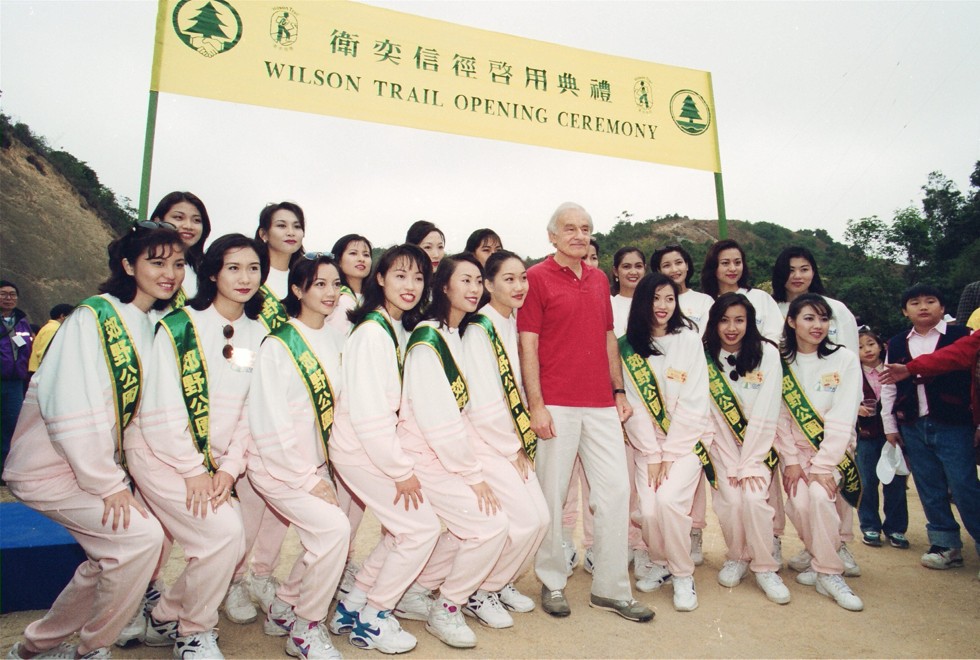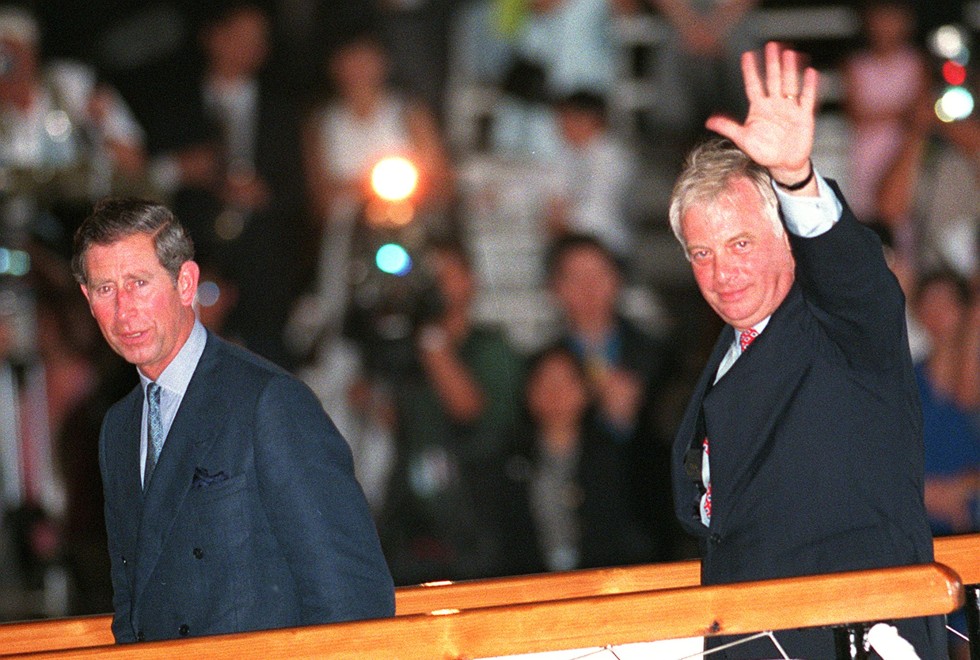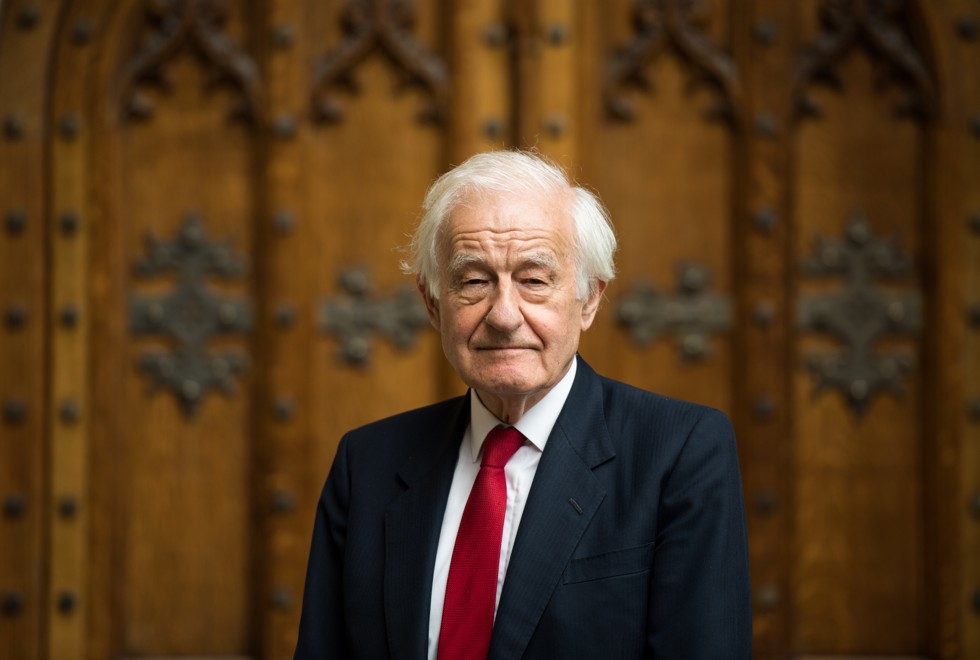
Hong Kong independence ‘never going to happen’: former governors tell city’s youth to focus on democracy
Patten says calls for independent Hong Kong dilute battle for democracy while Wilson says lack of upward social mobility spurs discontent
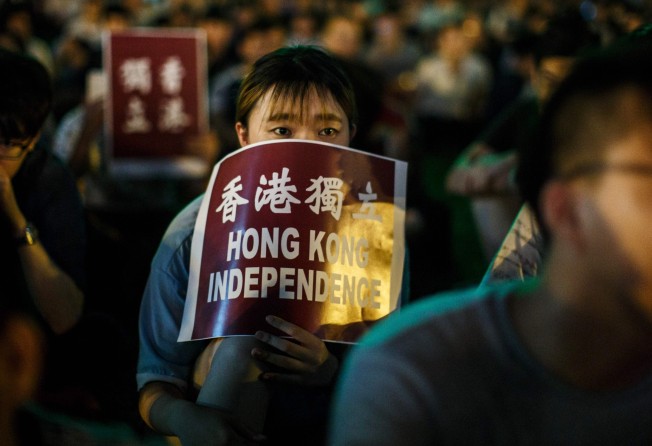
However differently they might have led colonial Hong Kong’s dealings with Beijing, David Wilson and Chris Patten agree on one message for Hongkongers 20 years after the handover: Forget the idea of a breakaway city state.
The two ex-governors of the former British colony made the appeal in exclusive interviews with the South China Morning Post as some young people, including those in the post-1997 generation, appear to have lost patience in a sovereign state they blame for the undemocratic political structure back home.
Wilson and Patten were far from critical of the youngsters, however. Instead, both recognised their efforts in shaping a city they call home. But the duo sounded an alarm bell for those whose actions could have gone too far and led to a rebuke from Beijing.
“Hong Kong is not a would-be nation-state,” Patten said. “With no disrespect to the people who advocate this, it is never going to happen.”
Patten, the last British governor before the 1997 transfer of sovereignty, called it a “big mistake” to have allowed the campaign for greater democracy to “morph into” an argument for independence over the past few years, saying: “I think that waters down the support of the overall community for democracy.”
Wilson shared the sentiment, likening calls for independence to waving “a red rag to the bull in terms of Beijing”.
“If Hong Kong is producing problems or is in confusion, then people in the north start getting worried and they start sending people to look into what’s happening and why it’s happening,” Wilson said.
“That doesn’t necessarily produce a more peaceful situation.”
He added: “In a number of different parts of the world, where protesters – perfectly legitimate protesters – push something and they have gone on pushing too far, the counter-effect has been very damaging to them.”
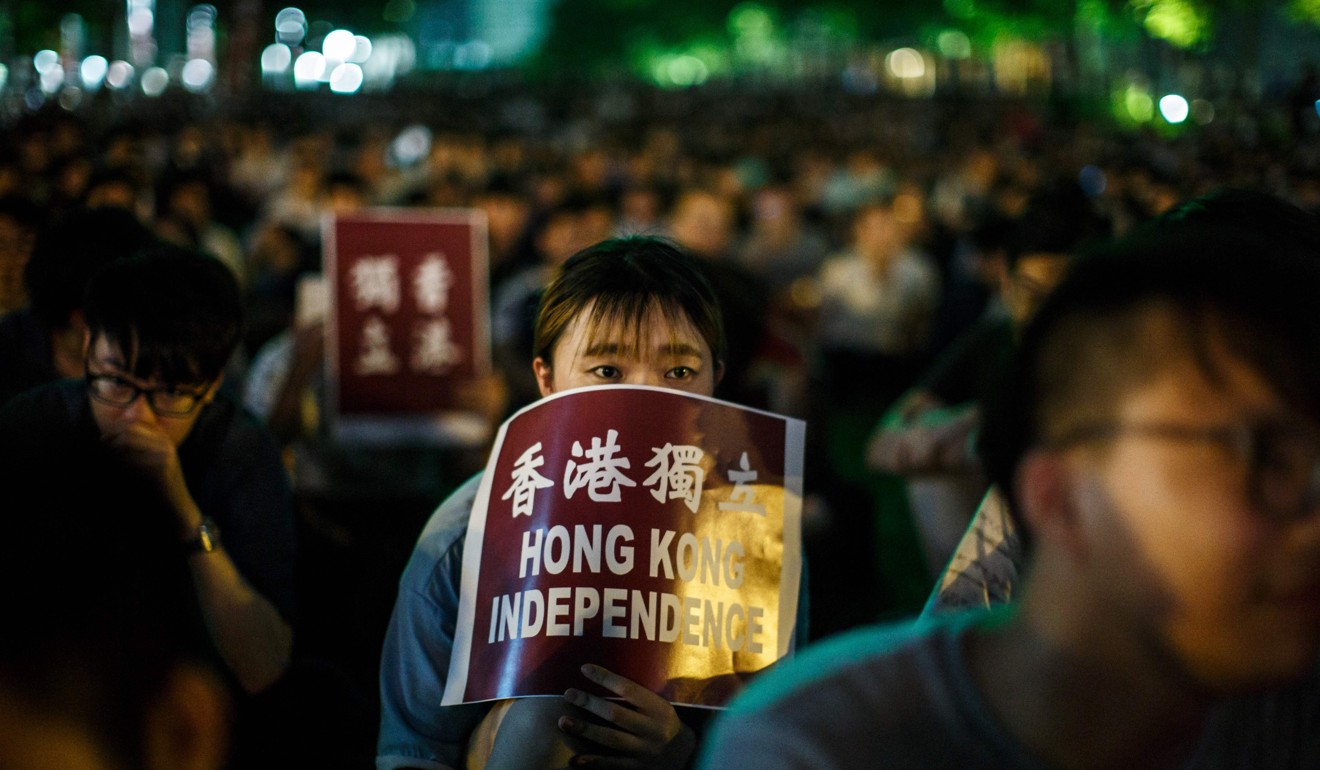
Talk of independence, rarely heard of when Hong Kong was a colony, emerged after the pro-democracy Occupy campaign in 2014, in which tens of thousands of protesters took part in sit-ins across the city to protest against electoral reforms. But their action failed to move Beijing to relax its restrictive approach to the city’s path to universal suffrage.
Last year, two pro-independence youngsters emerged as unexpected victors in the Legislative Council elections. They were soon disqualified – after Beijing interpreted Hong Kong’s Basic Law – over their pledge to uphold the “Hong Kong nation” in their Legco oath.
In May, China’s No 3 leader Zhang Dejiang laid down Beijing’s sternest and most detailed strategy for the city in recent years, warning Hong Kong not to confront the central government over the “high degree of autonomy” it was promised, and that it had to enact its own national security laws.
Wilson said he saw the rise of discontent as stemming not just from political aspirations, but economic privation as well.
“You do see a parallel in these elections we’ve just held [in the UK] – a lot of young people getting involved. The [Labour leader Jeremy] Corbyn’s support has been massive among young people, many of them very idealistic,” he said.
In Hong Kong, a lack of upward social mobility had been a catalyst for discontent, he felt. “Nearly everybody could hope either they or their children would move up, up the ladder. I think there’s a bit of a feeling now that you can’t expect that in the same way,” said Wilson, whose governorship of Hong Kong encompassed one of its brighter periods for the city when mainland China was still developing.
“In a lot of societies, young people have the feeling that there are not enough chances for them to be a Li Ka-shing, for instance.”
Wilson himself had a taste of post-handover youth activism when he was one of the guests celebrating the centenary of the University of Hong Kong, where students protested against then vice-premier Li Keqiang, now China’s No 2 leader. Not being the target himself, Wilson said: “It wasn’t unpleasant for me; no, not in any way at all.”
Both men agreed that it was a good thing for young people to take an active part in politics. For Wilson, the reason is simple: “It is their future.”
Patten, who expressed sympathy with the student-led campaign in 2014, recounted his memories.
“I can’t remember mass demonstrations before when people cleared up their own litter when they were youngsters, not much older than my grandchildren, helping others on their homework on the streets, and there was so little violence associated with this scale of demonstration,” he recalled. “It’s a great lesson to others on how to conduct a political debate in that way.”
The two ex-governors offered similar thoughts on the increasingly politicised younger generation at the centre of the widening rift between Beijing and Hong Kong.
Citing the dilemma facing Occupy student leaders, Patten said: “I think there was a moment when people … were saying: ‘Look, you’ve won the argument; you got huge international support. Quite sensible now to step back and put the pressure on the government to respond’.”
That served as a lesson for pro-independence activists, he said. “It’s always a test of statesmanship to know when you’ve gone too far and know about going back to the moral high ground.”
Also referencing the Occupy protests, Wilson said: “I’m worried about the fact that there is not an ability to understand where you’d made your point, you’d gone far enough, and the thing is to say, ‘OK we’ve made our point. That’s it’.
“I do think if you are going to get involved in a major way, you have to have a sense of what is possible and what’s not possible,” Wilson said.
